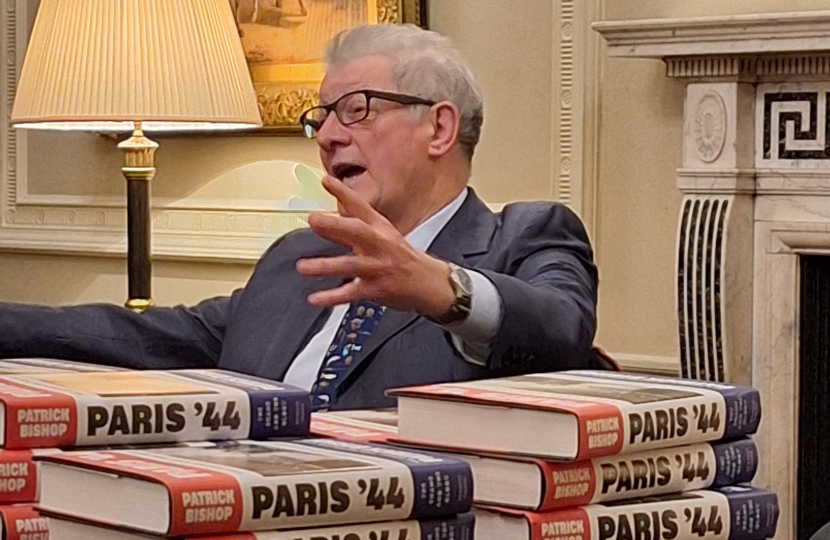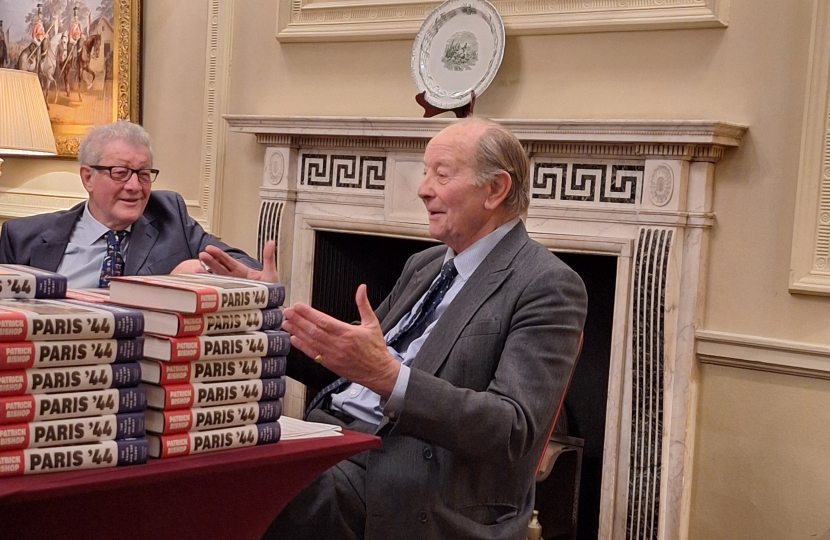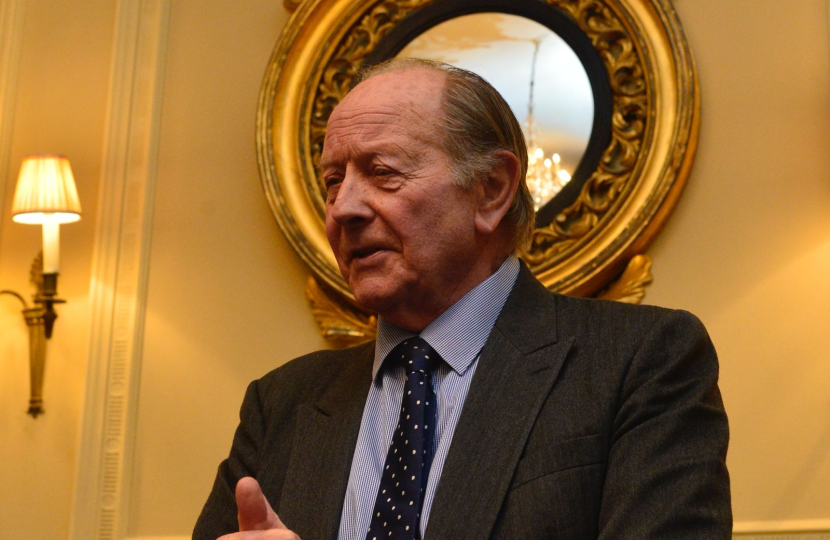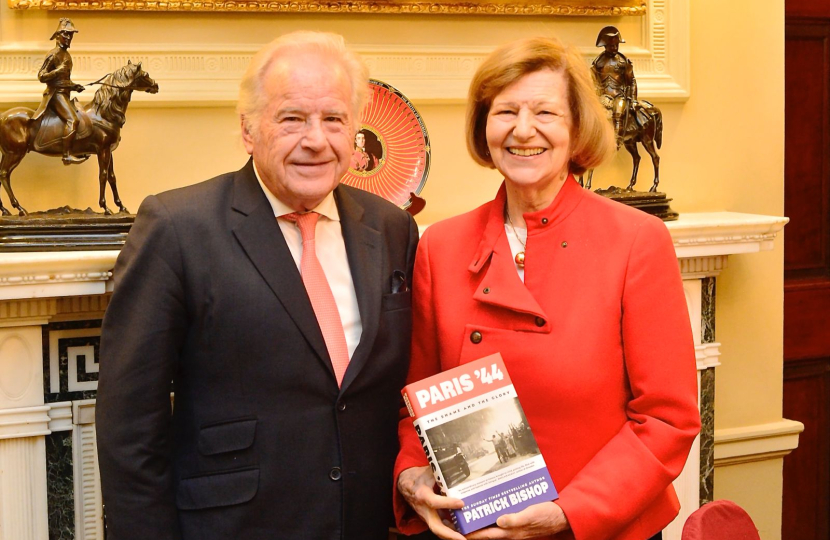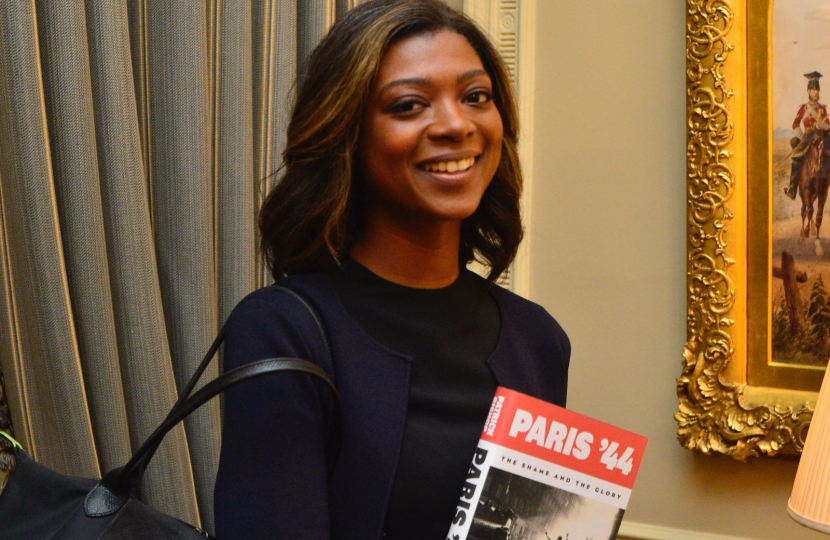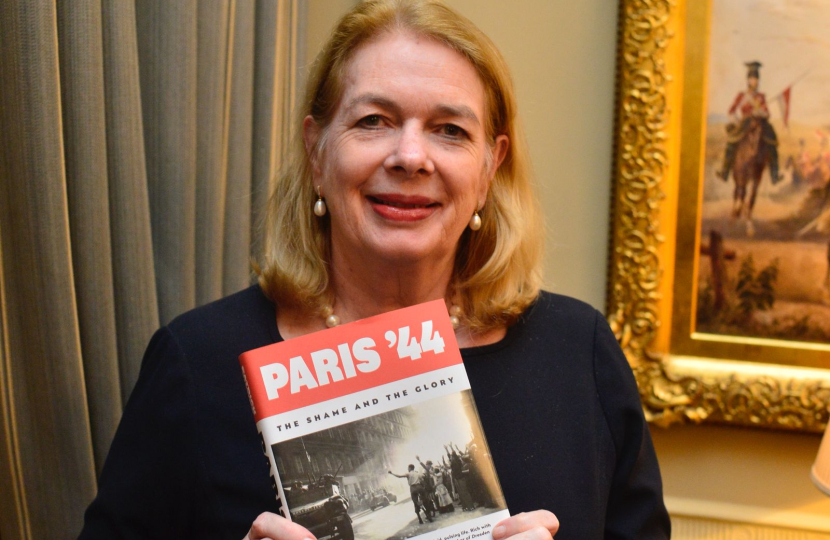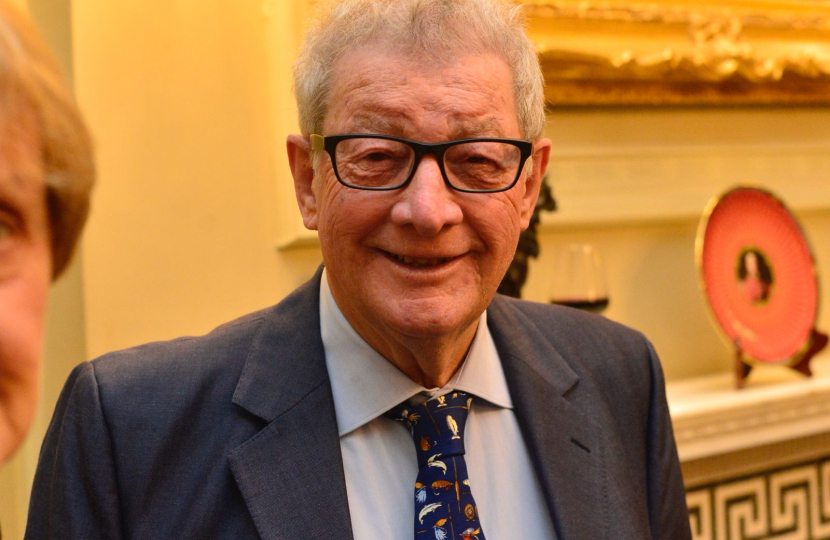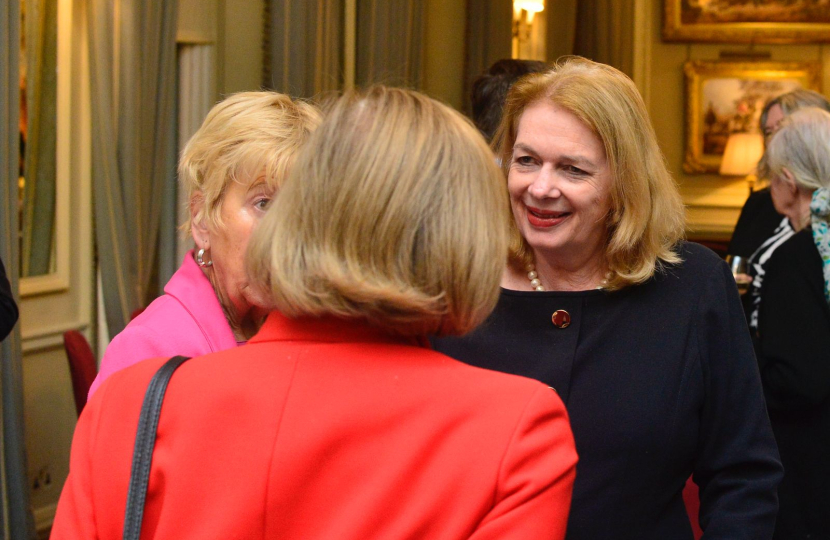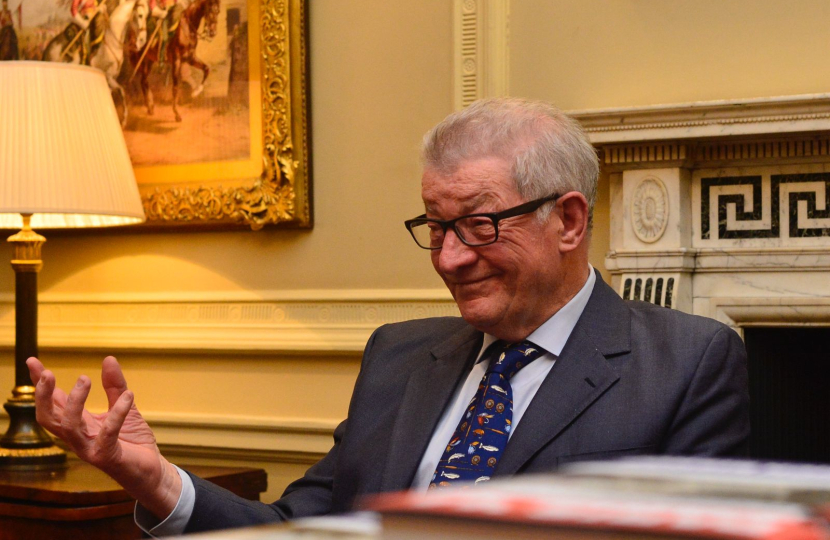An evening with Patrick Bishop
The CFCC was delighted to welcome military historian and foreign correspondent, Patrick Bishop to discuss his new book Paris 44: The Shame and the Glory at the Cavalry and Guards Club in London.
Interviewed by the Rt Hon Lord Hamilton of Epsom, he opened with the question most pertinent in our minds, ‘Why Paris 44 and the tribulations of the French?’
Bishop detailed that he had lived in Paris from 2015 with his daughter to immerse her in another culture and language. He had grown up in an era when France was cool and the epitome of sophistication. His interest in French history was sparked when he lived and worked in the city as a journalist. He confessed that he had a good knowledge of the culture and politics, but the trigger for why he wanted to tell this story which has been told many times was the marble plaques on the walls of Parisian buildings, which brought home to him that as Paris is so preserved, we sometimes forget that there was such a major military event there.
He discovered an interesting story with such fascinating people in attendance on Liberation Day, like Ernest Hemingway and JD Salinger, the latter of whom had served in the 4th US Infantry Division. He noted that Hemingway, unlike Salinger, did his best not to get called up. Ironically enough, Salinger, who had had a tough war was quite the opposite of his great protagonist, the slightly neurotic Caufield - the antithesis of Hemingway's 1930s macho man.
Lord Hamilton asked Bishop, “Before the war and right the way through, you painted France as a bitterly divided country politically, with a strong extreme right and a strong communist party on the extreme left. Why has France worked out that way and Britain hasn’t?” Bishop mused that it was a function of geography, and in continental nations, political ideologies seem to have taken root more deeply. The great secular religions of the twenties and thirties - were felt more deeply there than here. Countries like Russia seemed to be having endless wars with each other because of no natural boundaries. We have the luxury of the English Channel.
Bishop put the question to Lord Hamilton, who reflected that perhaps we respected our middle classes more. They went on to explore the saviour of Paris, des Gaulle’s post-liberation myth-making and the post-liberation exclusion of women. Bishop noted the patriotism of the French; and the sentiment that whether you’re left, centre, or right in France you are first a patriot.
In response to the audience question whether his book throws any new light on what happened, Bishop answered to rapturous laughter, “No”. There were no ‘never told before’ revelations to satiate modern appetites. 'So why keep writing about something that’s been written about before?' he reflected.
He concluded that there was no such thing as history because we see it differently with each passing year and decade. What he was trying to do was assemble a new bunch of actors and a body of testimony that would make people see it in a new way.
Jamila Robertson

